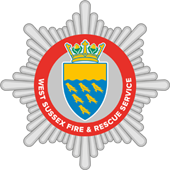1 Electrical safety
Learn how to ensure that your heating appliances and electrical equipment don't put you and your family at risk from fire by following these simple steps.
Avoiding electrical fires
- Never leave electrical items plugged in or unattended, especially at night.
- Regularly check that flexible cables on all electrical appliances are not worn or coming out of the plug.
- Make sure you have a working smoke alarm.
Plug safety
It’s a good idea to check plugs and plug wires regularly. Plugs and their cables can be damaged with use.
- Check the plug meets British Standard BS 1363 - it will be marked on the back.
- Look for cracks or damage on the casing.
- Look for signs of overheating, such as discoloured casing or cables, or scorch marks around a socket or plug or on an appliance.
- Be aware if there is a smell of hot plastic or burning near an appliance or socket.
- Check appliances if fuses blow or circuit-breakers trip for no obvious reason.
Overloading sockets
- Never overload an extension lead by plugging in too many appliances. This could cause the plug on the wall socket to overheat and start a fire.
- Only use one socket extension lead per socket and never plug one extension lead into another.
- Use the socket calculator to check you aren't overloading your sockets.
2 Electronic devices and chargers
Rechargeable devices such as mobile phones, laptops, tablets, e-cigarettes, e-scooters and e-bikes contain lithium-ion batteries which can start a fire.
- Only purchase electronic devices and chargers from reputable retailers to ensure they meet UK product safety standards.
- If there is a chance that the battery could be damaged, do not use the device.
- Always use the charger supplied with the device or recommended by the manufacturer.
- Charge the device on a flat, solid and stable surface. Never leave your mobile phone charging under a pillow.
- Don’t leave a device charging while unattended or overnight. Unplug the charger when the device has finished charging.
- Keep the device away from flammable materials while charging.
- Never charge e-bikes or e-scooters in hallways or stairwells where they could block your escape. Try to charge and store them away from living areas.
- Do not throw batteries or electronic devices away in your household bins. Take them to a recycling centre or check if your local council offers a collection service. Find out how to recycle batteries and electricals.
3 Appliances
- Look out for product recall notices.
- Register your appliance - appliances up to 12 years old can be registered on the Register My Appliance website.
- Don’t run appliances such as tumble dryers, washing machines or dishwashers overnight or when you are out.
- Always read the manufacturer’s instructions.
- Have your appliance serviced by a qualified engineer.
- Do not put rags or materials into a tumble dryer if they have been used to soak up flammable liquids.
For more safety advice visit Electrical Safety First or our Fire safety booklets page.
4 Keeping warm at home
Electric blankets
West Sussex Fire and Rescue Service carry out free electric blanket testing annually.
Follow these simple steps when purchasing, using and storing your electric blanket. If your blanket is more than 10 years old, consider disposing of it and buying a new one.
Do:
- read and follow the manufacturer's instructions before use
- carry out a visual check of the blanket to ensure it is intact, with no visible signs of damage when first purchased
- replace it with a new one if the fabric is worn or frayed.
Don’t:
- touch the blanket with wet hands or feet
- use the blanket while it is still folded, rucked or creased
- use the blanket if the wires are visible or poking through the fabric
- have the blanket switched on when you are in bed/sleeping.
Portable heaters
Do:
- put the heater on a level surface, away from anything that could knock it over
- regularly inspect the heater for damage
- place the heater at least a metre away from combustible materials.
Don’t:
- leave the heater unattended while it is ignited or you are asleep
- buy or use second hand heaters - purchase them from recognised manufacturers
- use them to dry clothes.
Wheat bags
Wheat bags have a variety of uses, including as a source of warmth during cold weather. However, some people use them to warm their beds, which is not what they are designed for. This can cause a fire.
Do:
- only buy wheat bags with clear heating instructions
- read and follow the manufacturer's instructions carefully
- watch out for a smell of burning, indicating overuse
- leave it to cool in a safe area on a non-flammable surface, such as in a kitchen sink.
Don't:
- leave the microwave unattended when heating
- overheat (maximum is 3 minutes for most manufacturers)
- use wheat bags as bed warmers
- reheat the bag until it has completely cooled, which could take up to 2 hours.


